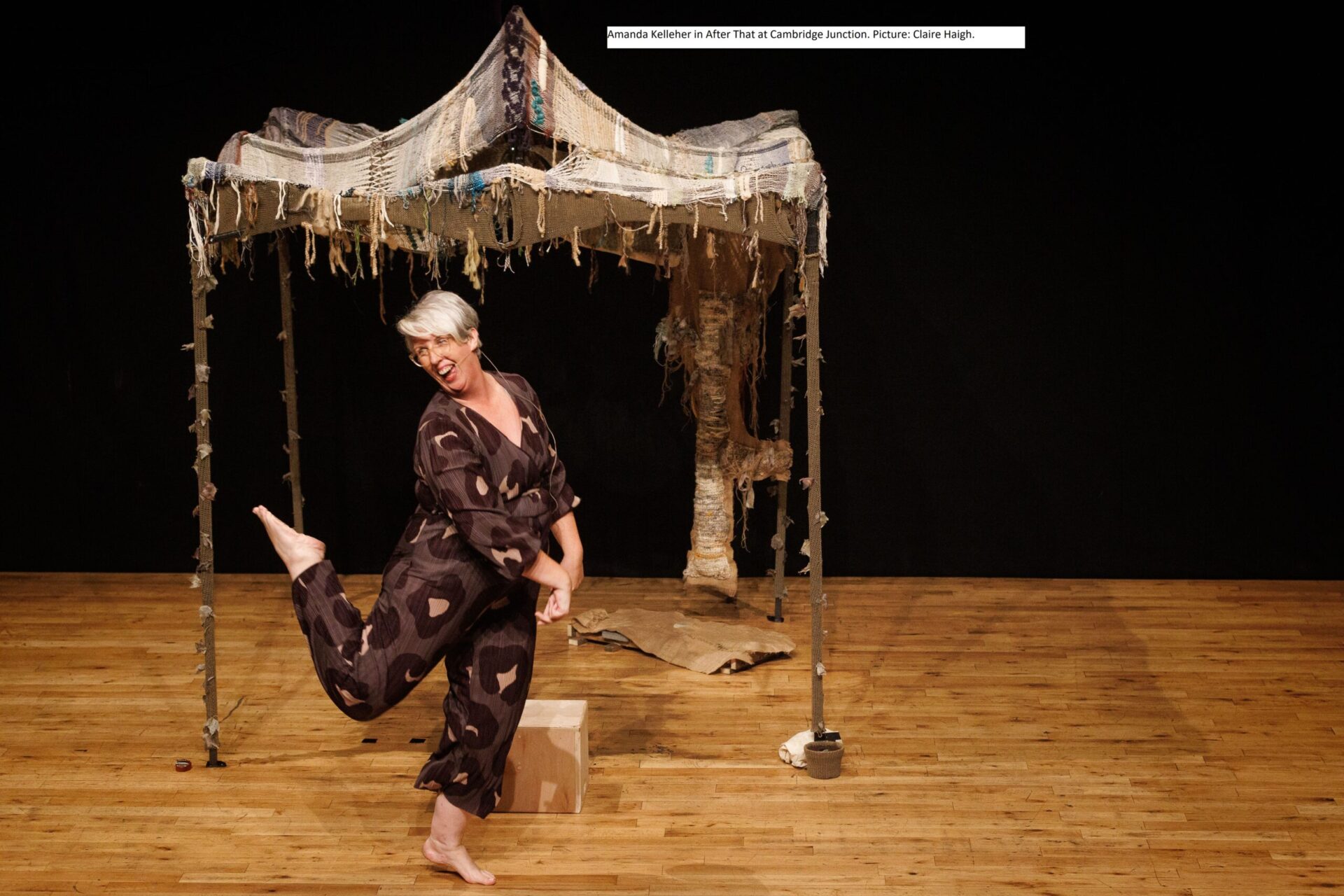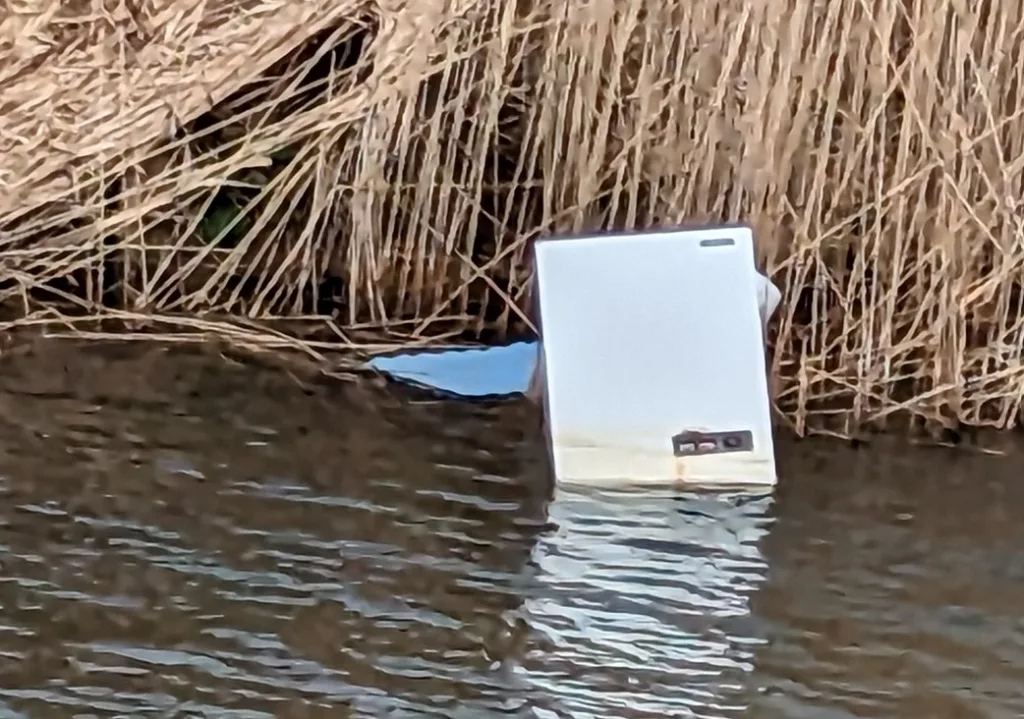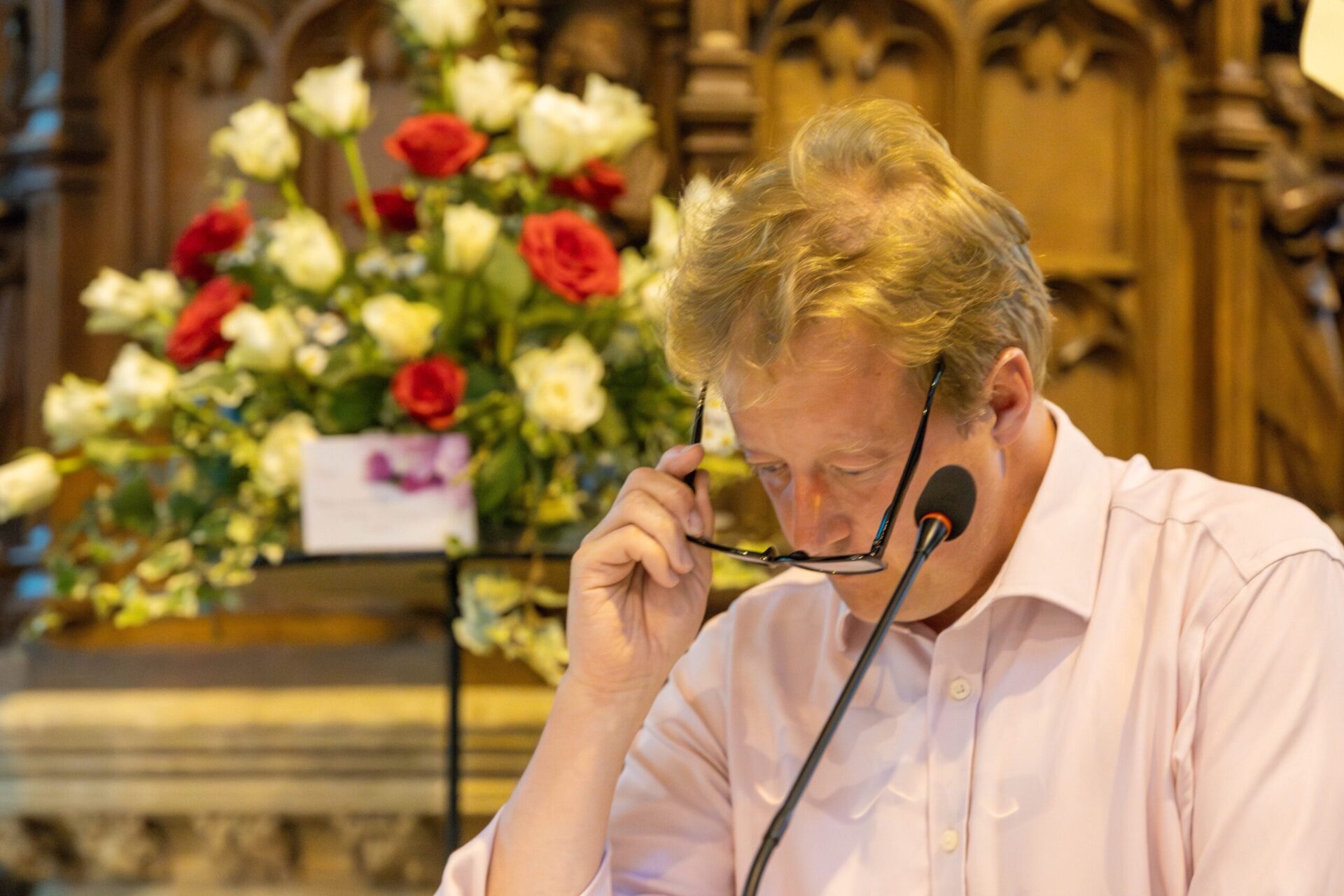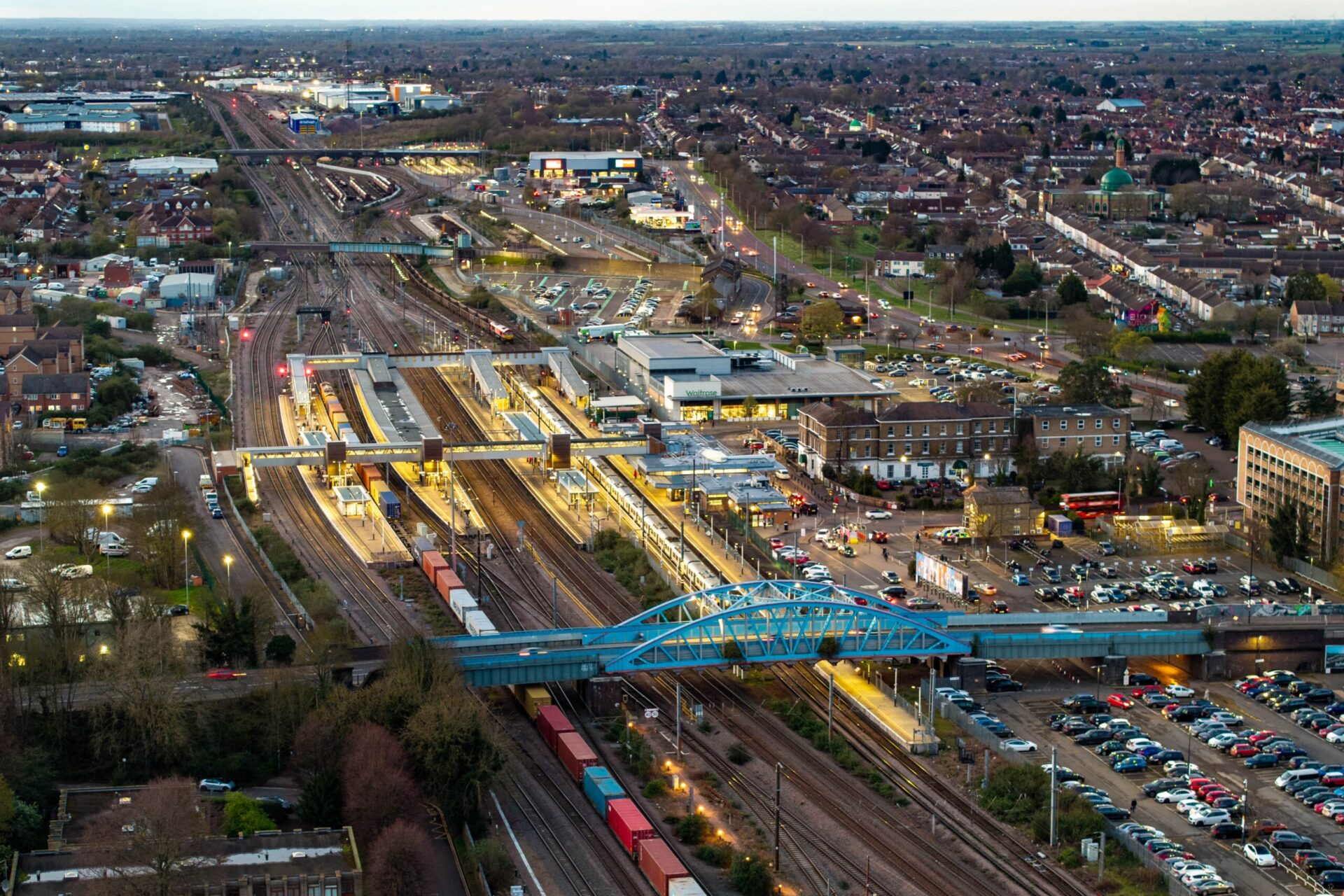In Brave New World, Aldous Huxley’s futuristic book published in 1932, the Controller explains why the population is willing to have every detail of their lives controlled. They had been terrified into it.
It followed a war with anthrax bombs.
He says: “After the Nine Years’ War, people were ready to have even their appetites controlled then. Anything for a quiet life.”
Reminiscent of Huxley’s theme, Amanda Kelleher’s story-telling show is called After That.
Designed for families and with audience participation at the start, this is a parable about “being ordinary” as the price for a life of dull safety.
In Ordinary Town, she says, there is no risk and no danger. Everyone’s health is constantly monitored by a watch on their wrist.
But also she says, there is no fun, no excitement. No downs but no ups. The greengrocer wishes his customers “Have an ordinary day!”
At the beginning of the show, Kelleher asked members of the audience at Cambridge Junction for their “favourite nice things”.
Some people answer that it’s hearing a child play a musical instrument. It could be anything: ice cream, seeing the sea, or walking in a forest.
None of these things exist in ordinary town, we are told. There are no longer any nice things. Everyone has rocks in their belly to keep them anchored, to keep their feet on the ground and their lives safely ordinary.
The story, a modern morality tale, revolves around a woman aged 40 called Grace who finds a cache of musical instruments, unheard in Ordinary Town.
She rebels by playing them and eventually, the vibrations from the music break up the rocks inside people. Shards they emit pierce the safety covering over the town.
Suddenly, the inhabitants can see the hidden and forbidden wonders of the natural world. People can at last see the sea and the stars. Grace, she says is filled with “sunshine and bubbles and brave, stubborn hope.”
After That will be at the Headgate Theatre Rehearsal Room on Saturday and Sunday, October 22 and 23 as part of Colchester Fringe Festival.





















